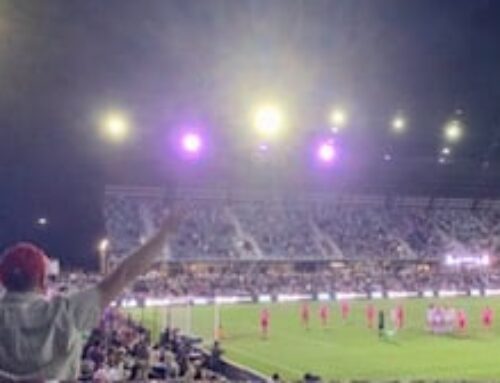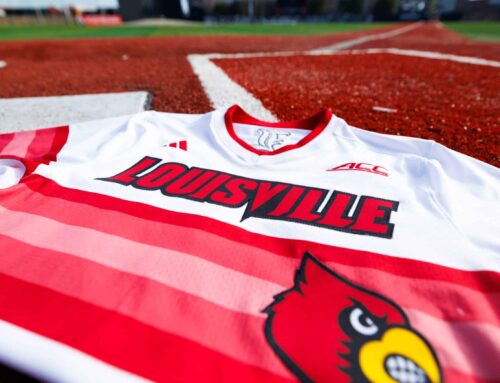by Michelle Molodynia —
Thomas Dahlia, 24, swims so well he was recruited by U of L and won the French national championship. A senior majoring in communication, Dahlia is one of the University of Louisville’s 100 and 200-meter breaststrokers.
Dahlia is from a small French colony near New Zealand and Australia called “Nouvelle-Calédonie,” or simply, New Caledonia. Coming to U of L, he went through a language barriers, adjustments to the new school system and adaptation to the different foods.
The language barrier created many problems for Dahlia.
“My English was not good at all,” he said. “I am blaming our education system for that. They don’t teach us how to speak English, but instead only to write and read (English). Due to this, understanding people and being understood by others was very complicated when I first arrived.”
As Dahlia explained, the American education system is much different.
“Over in New Caledonia and in France, we do not have teams representing universities, so coming to America really was a shock,” he said.
Even the slightest difference with vocabulary such as the names of each year of college—freshman, sophomore, junior, senior—although quite obvious for an American, is foreign to internationals. The word “college,” itself, is a difference. Most English-speaking countries call college “University,” or “Uni.”
Not every part of American culture was totally foreign to Dahlia, though. “Culture-wise, there are still many things that I can catch like food, religion, sports and behavior,” he said.
Not only did the French to English struggle shock Dahlia, he was also caught off guard by the difference in food choices. “I am not really enjoying the food here, or at least at the grocery stores,” he said. “It is very basic here and you don’t have choices between many brands.”
Dahlia explained that in France, competition is very tough, thus companies increase their product quality and decrease their prices constantly.
Although New Caledonia has a different official language, different political, economical and education systems, different food choices and a lesser emphasis on student athletics, they still produce athletes like Dahlia, who are given opportunities to compete for Division I athletic teams here in America.
“I love being in the U.S, improving my English and practicing,” Dahlia said. “Swimming here is definitely the best compared to what I have experienced elsewhere. We travel a lot, which is also a good thing, because I love to see new cities and landscapes.”





